Stores¶
A store connects to a data source that contains raster or vector data. A data source can be a file or group of files, a table in a database, a single raster file, or a directory (for example, a Vector Product Format library). The store construct allows connection parameters to be defined once, rather than for each dataset in a source. As such, it is necessary to register a store before configuring datasets within it.
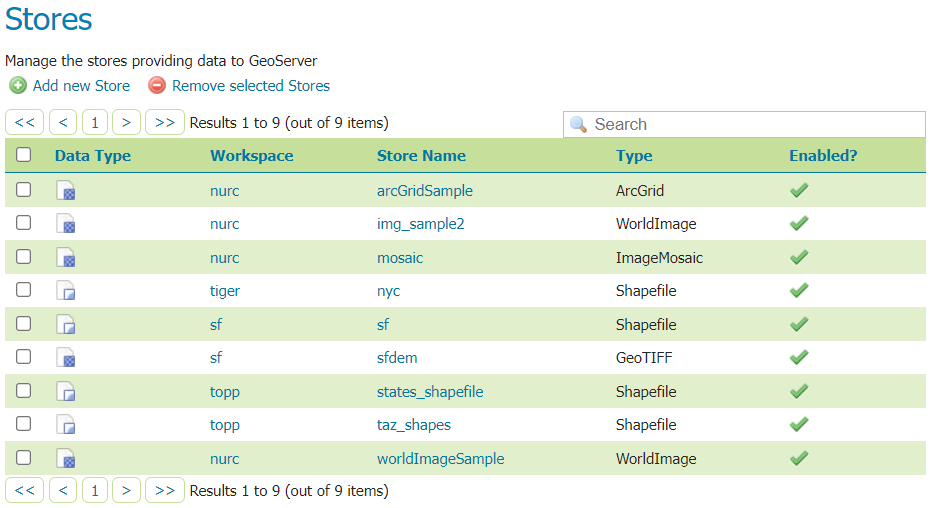
Stores View¶
Store types¶
While there are many potential formats for data sources, there are only four kinds of stores. For raster data, a store can be a file. For vector data, a store can be a file, database, or server.
Type Icon |
Description |
|---|---|

|
raster data in a file |

|
vector data in a file |

|
vector data in a database |

|
vector server (web feature server) |
Edit a Store¶
To view or edit a store, click the store name. A store configuration page will be displayed. The exact contents of this page depend on the specific format of the store. See the sections Vector data, Raster data, and Databases for information about specific data formats. The example shows the configuration for the nurc:ArcGridSample store.
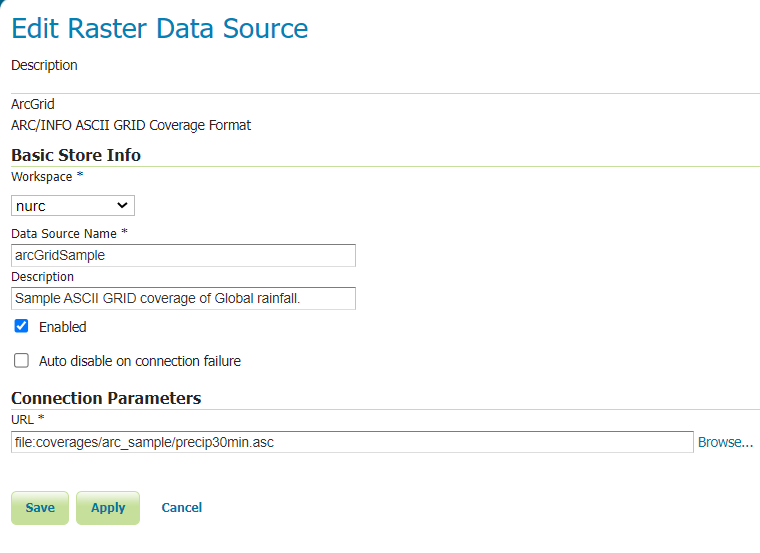
Editing a raster data store¶
Basic Store Info¶
The basic information is common for all formats.
Workspace - the store is assigned to the selected workspace
Data Source Name - the store name as listed on the view page
Description - (optional) a description that displays in the administration interface
Enabled - enables or disables access to the store, along with all datasets defined for it
Auto disable on connection failure - auto disables access to the store if any issue happens when geoserver tries to acquire access to the store
Connection Parameters¶
The connection parameters vary depending on data format.
Add a Store¶
The buttons for adding and removing a store can be found at the top of the Stores page.

Buttons to add and remove a Store¶
To add a store, select the Add new Store button. You will be prompted to choose a data source. GeoServer natively supports many formats (with more available via extensions). Click the appropriate data source to continue.
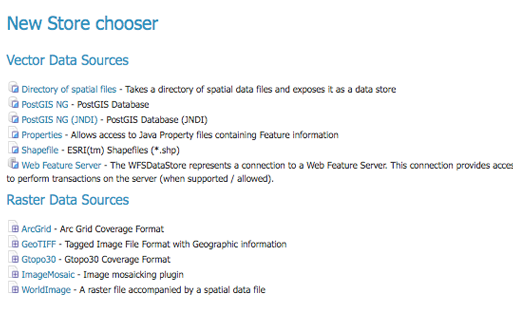
Choosing the data source for a new store¶
The next page configures the store. Since connection parameters differ across data sources, the exact contents of this page depend on the store’s specific format. See the sections Vector data, Raster data, and Databases for information on specific data formats. The example below shows the ArcGrid raster configuration page.
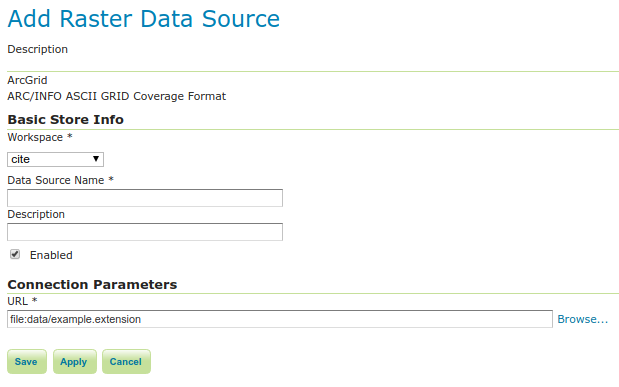
Configuration page for an ArcGrid raster data source¶
Remove a Store¶
To remove a store, click the checkbox next to the store. Multiple stores can be selected, or all can be selected by clicking the checkbox in the header.
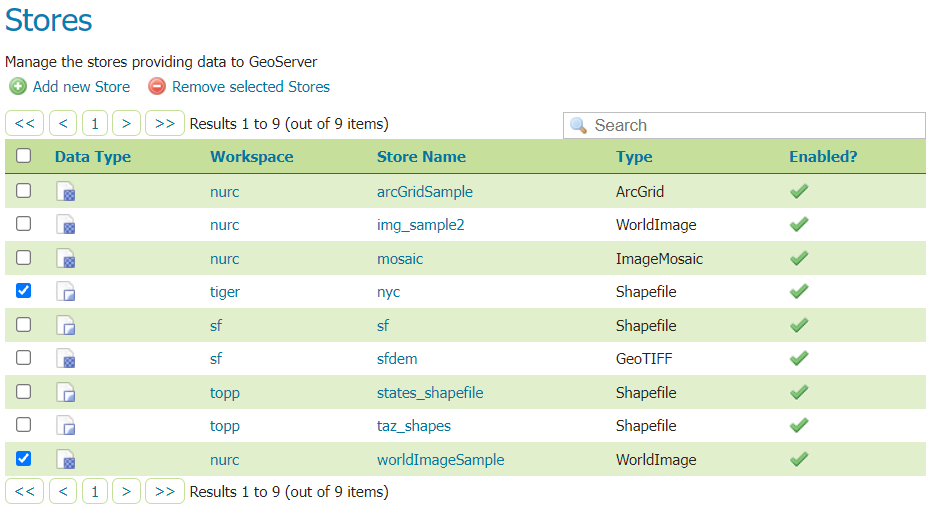
Stores selected for removal¶
Click the Remove selected Stores button. You will be asked to confirm the removal of the configuration for the store(s) and all resources defined under them. Clicking OK removes the selected store(s), and returns to the Stores page.
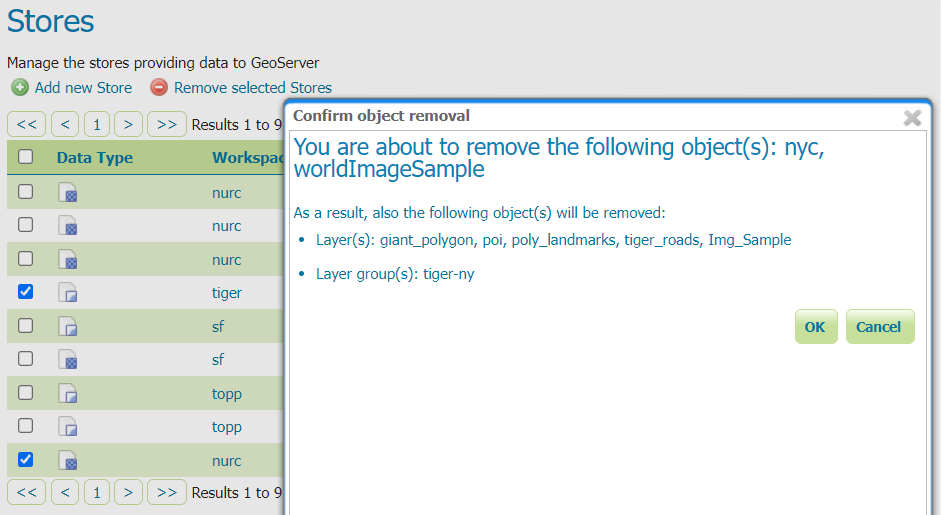
Confirm removal of stores¶